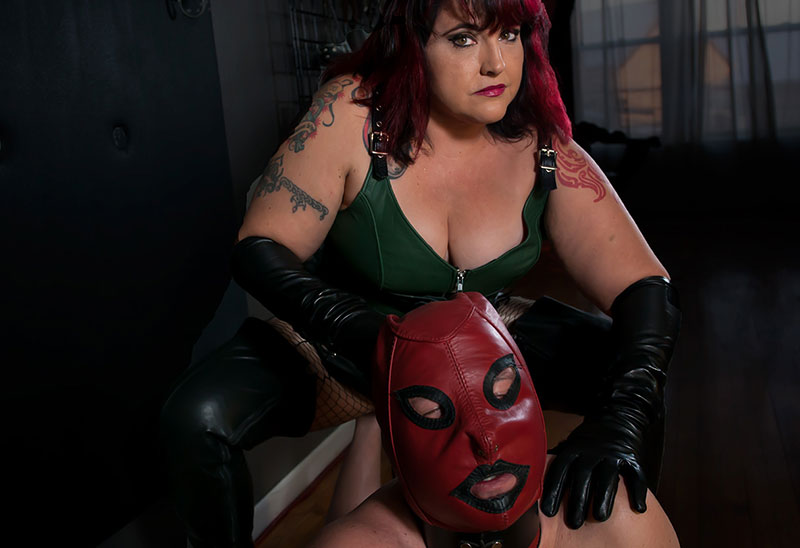Boundaries and Rights of the Dominant Person in BDSM & Kink

Behind the Glass
For the sake of this article I will use the terms : Domme/ Dominant/Top to mean the one in charge or controlling the BDsm or kink interactions. Sub/Submissive/Bottom will be used to refer to the one submitting or accepting the control and BDsm interaction. Terms will be used interchangeably. Keep in mind, definitions of roles are fluid and have unique meaning for those who use them. Do not judge another by a simple label in a profile or website. For further explanation of Bdsm labels, plus a really fun list of terms to read through, visit Sexual Alpha
This blog started as a conversation over 20 years ago with one of my submissives. We had finished an intense scene with him doing lots of boundary expanding, pain acceptance and catharsis. He required an extensive period of aftercare to recover ,with myself making sure he was safe and functioning. When he came back down to reality, we began a conversation on how I was feeling and what I needed. It was the first time we both realized my own self needed attention after a scene too. From there ,the conversation expanded to include boundaries and limits of the Dominant.
Much has been written about how a Dominant/Top should care for their submissive/bottom during the evolution of a scene. Concerns over possible abuse, inaccurate techniques and unsafe surroundings have been discussed, lectured and written about to no end. As the dominant ones, we are told it is our mandatory responsibility, for all our encounters, to follow safety guidelines and aftercare rules. Kinkly presents a good definition of aftercare here. Learning how to care for one’s submissive is an excellent goal for all dominants. It will assist them in having a better understanding of what a submissive goes through. We develop empathy through caring for our submissives after an intense session.
Aftercare,Limits and safe-words for many years were considered a one -way street leading from the Domme to the Submissive. An often-ignored area is the dominant’s rights. Yes, we do have them as well as bottoms! It is often viewed by our community that the bottom is the only one at risk when engaging in our lifestyle/play/encounters. Not until we hear stories of dominants being beaten, raped or abused by their submissives do we realize that dominants are also at risk. Sometimes even more so as we are supposed to be the caretakers. We often get too comfortable with administering to our play partners, ignoring possibly warning signs something is off.
Our scenes are often described as a power exchange. Exchange is the operative word here.The energy should flow freely back and forth between partners. One would assume the best encounter would be an evenly balanced exchange. Not so. Each interaction differs on what the people involved desire and agree upon. I might engage in heavy energy manipulation where I am giving much more than taking. The submissive may be relaxing in bondage while I am working hard to place them there. My submissive may be working very hard on cleaning my bathroom or massaging my feet. Energy expended. Therefore would it not seem logical that both involved are affected by the encounter and might need to verify well being in each other. How many times have we witnessed a scene finishing with the submissive being taken down, given water, body conditions brought back to normal stasis all under the care of the Domme with it ending there? The Domme left to fend for their own water,control their reactions and balance endorphins. Many scenes can be more emotionally and/or physically taxing for the dominant. At the end of each scene, both parties involved need to assess not only the other’s condition but their own.
Limits is another area where No mean No on both sides. Just because one of my submissives desires a certain activity does not mean I have to engage in it. As a young prodomme I felt compelled to do all fetishes and kinks. Good for business! As I matured, I discovers my true kernel kinks, as Princess Kali calls them. So now, I’m very clear on my limits. If I don’t enjoy an activity, I don’t do it. Limits can occur during a scene too. if I feel a scene is going badly ; into a negative or unhealthy energy or limit reaching ability of one person, it is my right – and responsibility-as the Domme to call the scene. Many times I have stopped a scene due to reading my sub’s body language ,knowing if we keep going it will end poorly. Likewise if I am unfocused, not feeling well or too tired, I can stop for my own health.
Boundaries and limits can be synonymous, but do not always need to be. Currently boundaries is the catch phrase used in our society.It can be overused which can create confusion when negotiating.
My definition of boundaries differs slightly from my limits.To me, a limit is something that is fluid, can move and grow, sometimes quickly. For example, say I am playing with a sub. We plan on doing 25 needles in his cock. That’s our limit – however after just a few we both learn he is unable to do that many today. The new limit is 3. Assessment = Change. Limit moves.
For me, a boundary is set. It takes much more time and effort to alter my boundaries. An example of one of my boundaries would be my policy of no sexual intercourse with a submissive. This hasn’t change in 30 years for me. It is a hard and fast boundary. To change it would take discussion, introspection and judgement. It’s not going to just change based on timing and ability. Keep in mind, this is my definition. It does not need to be yours.

Trust me, I got you!
The basic tenets of Dominant rights include:
1.The right to their safety in all encounters
Physical: The right to be informed of any potential physical dangers they may encounter in playing with you, including STD’s [do your homework and review this list of current STDs ] possibly infectious diseases and recent illnesses a submissive might have. One key factor often missed is medication. If I am to to play with you, I need to know any possible things that could affect your responses. To keep such hidden under the guise that it doesn’t affect the scene is reckless and dishonest. Accidents do happen but it is not ethical to put another in unknown harm’s way. Everyone has the right to refuse a scene or play partner without repercussions, such as damage to their reputation. All dominants have the right to interpret this aspect for themselves. One’s comfort is an individual concept.
Emotional/Mental: The right to maintain their own space and boundaries. If uncomfortable with a situation, the right to remove themselves from such. There is a common myth that as the “strong one”, the dominant should show little emotion and maintain decorum at all times. All of us are humans with emotions that affect our processes. Dominants have the right to show and express the emotions that are effecting them.This includes anger, sadness and disappointment. We can also experience triggers. If a dominant is triggered in scene, it could be an issue if the submissive is in compromised situation. This is an excellent short article explaining triggers : A Touch of Flavor-triggers. The right to be informed of any past repressions, mental issues or abuse or possible triggers that may affect the play they initiate with a partner. They also have the right to end a scene or play connection if they feel it has become unhealthy for either person involved.
Spiritually: The right to practice BDSM spiritually if they so desire and to find like-minded play partners. The right to not be judged or criticized for not playing with someone based on this aspect. This can be a factor when religious play is on the table.

Worship at the altar of your Goddess
2. The right to informed consent
Dominants have the right to agree or not on participating in a scene based on honest information. They have the right to research all potential play partners as much as needed to become comfortable, with the knowledge of doing so to that play partner. This includes inquiring into experience and past relationships. One can ask for references if need be. They have the right to refuse gracefully with repercussion if they feel uncomfortable with a possible scene.Keep in mind, the potential play partner has the right of refusal and to do same with you. Consent is an individual concept so please do not assume a potential pay partner views it the same.If unsure about consent, Kink Academy has some good clips on the topic.
3. The right to educate themselves
Pursue knowledge and expand their skills in any area they are interested in. Ask other dommes for assistance if they are uncomfortable with an activity. It is more honorable to admit one does not know something than to pretend they do. Admitting that one does not know all is a show of good character. Exercising intelligence will help insure a good and safe scene for all involved.Too often dominants are expected to have all the answers. This common misconception can lead to frustration within the power exchange. Dommes may feel overwhelmed when not allowed to be fallible. However, we are lucky to live in an era where online education is prevalent. We can just search for any topic and find multiple resources. A few that I highly suggest are Kink Academy – one of the first and still best, Lee Harrington’s Passion and Soul, Kinkly, The Submissive Guide , and Evie Lupine on You tube. A word of caution :All knowledge is subjective. You will find opposing facts, viewpoints and opinions. Refer to multiple sources to learn, even about the same topic. You can also find some educational articles on my site covering topics from CBT to Foot fetish.
4. The right to stop a scene
You might have witnessed a play scene where the dominant is goaded on by the submissive to give more. As the dominant, we have the right to call our scene/play if we feel a limit has been reached, fatigue has set in and hindered our accuracy, the response from our partner is not conducive or we’re just done. As a professional Dominatrix, we are geared towards making our client’s happy which can push limits close to unhealthy if not careful. It is our responsibility to monitor just how far a sub can go even if they feel can take more. That is why the safe word is so important. It gives them an out. Our out is to to stop administering to them when we feel enough is enough. This is one area where negotiation prior to play is important. Before a scene begins, we should communicate to the sub what may cause us to stop the scene.
5. The right of determination
Just as a submissive does, a dominant has the right to determine what they desire from a submissive, who may or may not fit those criteria and the right to say No thank you to ones that do not match. They have the right to determine who to train, what style they enjoy training in and how someone earns their collar. In regards to ownership, the dominant has the right to decide when a collar has been earned, what requirements must be met and to request a collar be returned. Collaring someone is a commitment to them and the power exchange. To me, it is not offered lightly. This is an excellent article on what a collar represents. Those who have my collar put in the effort ans I have to forge the connection. I know some just hand them out like candy. To me, that does the collar a disservice. I want the sub to know I own them and am proud of to say they are mine.
6. The right to their own style
Each of us is unique in our dominance. No one way is better. What works for one does not always work for another. How boring this life would be if we were all the same. The right to not be judged by other dominants or ridiculed because one’s style differs. Expecting your Dominant to conform to your fantasy image is unfair and unrealistic. They are not your walking porn. Reality is different from fantasy. While creating an alternative reality and space can be part of our play, it can also be based in a deep intense reality of emotions and energy. I have often terminated a scene, connection or relationship due to unrealistic expectations from the submissive for me to conform to their desires. I am not a touchy person. I am also sharp of wit. Constantly asking for hugs or to touch me is a big no-no. Likewise, if you can not accept my biting wit, we will have issues. I always suggest a potential play partner do their research before deciding to serve a Dominant. Our style tends to be presented clearly on our web presence. You can learn more about my style here.

Mistress’s style
7. The right to be proud of their dominance
Without crossing over into arrogance, the dominant should enjoy the strength and control they have. I have spent years refining my skill, control and dominance, thus earning the respect of my industry, community and slaves. I’m proud of my skill and expect to be treated with respect from those approaching to serve. However, being dominant does not give one the right to be a bitch or jerk. A true enjoyment of one’s nature and role is acceptable. Enjoy the privileges that come from it, but keep in mind the responsibilities too.
Please remember as a dominant, you do have rights in addition to responsibilities. Both need to be apart of you, and balance each other out. First and foremost is your right to honesty between yourself and any potential partner. You have the right to interview, inquire and question before, during and after any scene. Get to know your partner before you play with them. Let them see you in action with others. Be honest about who you are, your play style, level of experience and what you have to offer. Misrepresentation of any kind can lead to a disastrous encounter. Use your instincts. If you feel uncomfortable, there is probably a reason.
Many of the rights expressed here do apply to both partners in any lifestyle encounter, but I felt the need to express the Dominant’s viewpoint.
If you would like to discuss a session with me, feel free to email Mistress. I love to hears thoughts on my writings.

